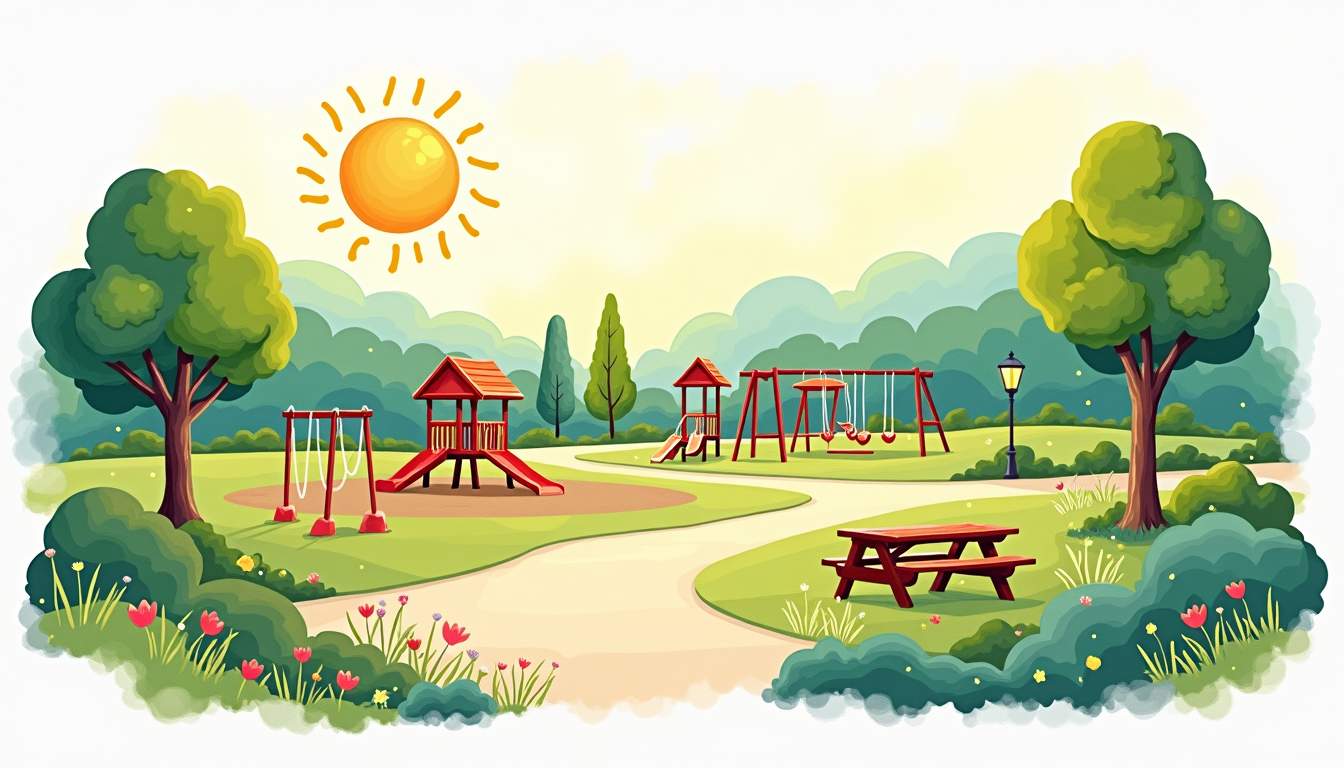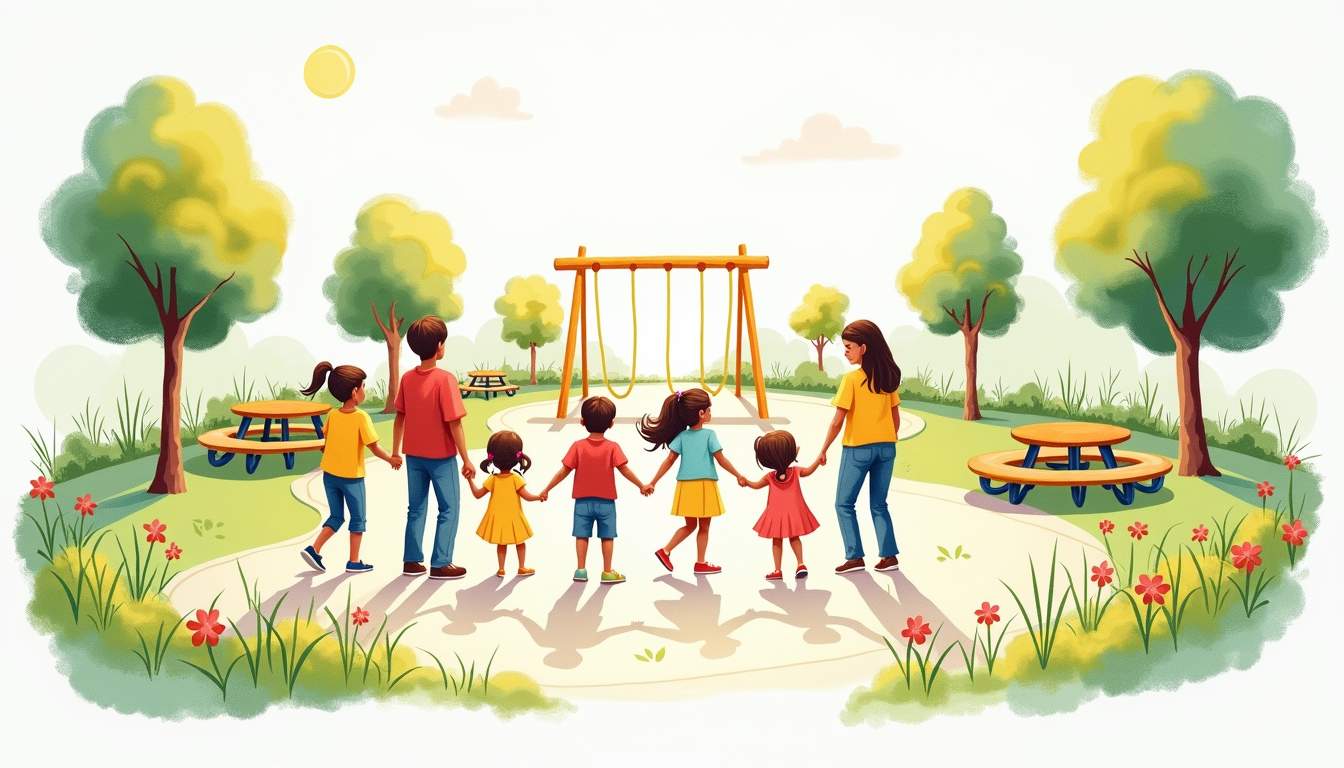
Tennessee National was designed with family life and neighborhood interaction in mind, which shows in everything from street layouts to community spaces. Sidewalks, pocket parks, and gathering spots are woven into the neighborhood to make casual meetings a natural part of the day. This design encourages neighbors to stop and chat, children to play outdoors safely, and parents to feel comfortable leaving kids under the watchful eyes of familiar faces.
Living in a place where the physical environment encourages connection reduces the friction that often keeps adults and children indoors and isolated. Instead of layouts that prioritize car travel and gated separation, Tennessee National emphasizes walkability and visibility—two simple ingredients that produce spontaneous social moments, shared routines, and a stronger sense of belonging.
The social calendar at Tennessee National strikes a balance between planned events and informal opportunities to connect, giving both structure and flexibility to busy family life. Weekly and monthly activities cater to a wide range of ages and interests: story times and playgroups for toddlers, swim lessons and pool parties for older kids, fitness classes and book clubs for adults, and seasonal festivals that bring the whole neighborhood together. These recurring opportunities make it easy to form reliable friendships and create shared experiences that become the backbone of community life.
For families juggling work, school, and extracurriculars, the mix of drop-in and scheduled programming is especially helpful. Some events are short and casual—like coffee mornings or backyard barbecues—while others are multi-day or seasonal, such as holiday parades or summer camps. Both types of events matter: casual meetups lower the barrier to participation, and signature events create traditions that children look forward to year after year.
Children benefit from programming tailored to developmental stages. Young children thrive in sensory-rich playgroups and parent-infant classes that encourage motor skills and socialization. Elementary-age kids enjoy structured activities like sports leagues, arts and crafts workshops, and nature exploration clubs that build teamwork and confidence. Teenagers, often harder to engage, find a niche through service projects, leadership programs, and social events that respect growing independence while providing safe spaces to connect.
Safety and visibility in play areas are priorities that directly affect how often families feel comfortable letting their children play outside. Tennessee National's playgrounds and green spaces are designed to be both fun and observable from nearby homes, trails, or communal seating, so parents can supervise easily while chatting with neighbors. This design fosters a communal approach to child supervision where parents and caregivers naturally look out for one another's kids.
Open sightlines and centralized parks also make it easier to schedule playdates and group activities. When playgrounds are inviting and accessible, families with different schedules and lifestyles are more likely to meet on neutral ground. That regular exposure creates friendships between children and familiarity between adults, reducing the social friction that can make new neighborhoods feel anonymous.
Play spaces at Tennessee National consider a range of needs and abilities so that more children can participate together. Accessible equipment, shaded seating for caregivers, and sensory-friendly areas help families with younger children or special needs feel welcome. When playgrounds are inclusive, social opportunities expand for everyone, and children learn empathy and cooperation through play with diverse peers.
Beyond recreation, Tennessee National offers organized support networks that provide practical and emotional help for parents. New parent meetups, babysitting co-ops, and parenting workshops create channels for advice, resource sharing, and companionship. These networks reduce the sense of isolation that many parents face, especially in the early years of childcare when the need for trust and reliable support is highest.
Parent groups also function as informal information hubs where families exchange recommendations for pediatricians, tutors, and local services. That kind of local knowledge is invaluable and helps families settle in more quickly and confidently. When parents feel connected, children benefit from the stability and variety of social experiences that follow.
Shared childcare arrangements and volunteer babysitting pools are practical benefits that arise from strong community ties. Neighbors who know and trust one another can trade short childcare duties or carpool to activities, freeing up time for work or rest. Community bulletin boards and online neighborhood groups make coordinating simple, turning goodwill into concrete time-saving solutions.
Access to high-quality enrichment programs within the community is a major plus for families. Tennessee National hosts after-school clubs, language classes, music lessons, and STEM workshops in community centers and school-affiliated spaces. These programs shorten commute times and make it easier for kids to balance extracurricular learning with family time and downtime.
When enrichment is nearby, parents can more easily observe progress, coordinate schedules, and participate in events. That proximity also supports peer-driven learning: children meet classmates outside of formal school hours, collaborate on projects, and share interests that strengthen friendships and academic motivation.
Many programs are designed for whole-family participation, such as weekend science fairs, gardening workshops, or cultural nights. These events foster intergenerational learning and provide common experiences that families can enjoy together. Family-focused enrichment helps children see learning as a social, joyful pursuit and creates memories that link education with community.
Nature plays a central role in social life at Tennessee National. Hiking trails, lakeside areas, and community gardens provide scenic backdrops for social interaction. Group hikes, birdwatching clubs, and gardening days offer low-pressure ways for families to meet neighbors while enjoying the outdoors. The natural setting encourages active, healthy lifestyles and makes social gatherings feel more relaxed and restorative.
Outdoor activities also lower the stakes of meeting new people: a shared walk with dogs or a weekend family bike ride creates casual opportunities to strike up conversation. Such encounters often lead to invitations to other events, expanding a family's social network organically and at a comfortable pace.
Seasonal activities—like spring planting, summer movie nights on the lawn, fall festivals, and winter lighting events—capitalize on the neighborhood's outdoor amenities. These traditions create recurring moments that families can anticipate and plan around, and they help to anchor the community calendar with inclusive, family-friendly rituals.
Social life at Tennessee National extends to local cafés, family-friendly restaurants, and community gathering spots that double as neighborhood living rooms. These venues intentionally cater to families with kid-friendly menus, play corners, and changing facilities. Casual dining and coffee shops become meeting hubs where parents can socialize while kids engage with peers.

Having reliable third places—places between work and home—strengthens social bonds because they provide neutral, comfortable environments for conversations and planning. Parents can meet during naps or after school pick-ups, and teenagers can gather in safe, supervised settings that respect their independence while keeping them connected to the neighborhood.
Diversity is celebrated through events that highlight different cultures, holidays, and family traditions. Community-sponsored multicultural fairs, potluck nights, and open mic sessions allow families to share food, stories, and crafts in ways that foster mutual respect and understanding. Such events teach children the value of cultural curiosity and help parents build broader, more diverse social circles.

Inclusive community programming also signals that all families are welcome, whether they are single parents, multigenerational households, or newcomers. When inclusion is practiced deliberately, social life becomes richer and more resilient because it reflects a wider range of experiences and perspectives.
Practical amenities—like flexible community rooms, sports courts, covered pavilions, and well-equipped playgrounds—make it easier to host both small gatherings and larger neighborhood events. These spaces reduce the need to rent external venues and lower the logistical barriers to socializing. When gathering is straightforward, neighbors would be more likely to throw potlucks, birthday parties, and workshops that build community life.
Shared amenities also encourage cross-family participation: a family that uses the tennis courts may meet another that prefers the pool, and through shared spaces, different social circles intersect. These overlaps create a denser social fabric where acquaintanceship can deepen into meaningful friendships.
Children who grow up in socially engaged neighborhoods benefit emotionally, cognitively, and socially. Regular interaction with peers and adults helps develop communication skills, empathy, and conflict resolution. For parents, the support network reduces stress, increases parenting confidence, and offers practical help when needed. Together, these factors create a stable environment where families can thrive.

Moreover, social roots in a community foster a sense of belonging and responsibility. Children who see neighbors helping one another learn the value of civic engagement, and parents who participate in community life often model collaboration, volunteerism, and leadership. These patterns contribute to a healthier, happier neighborhood not just for today, but for future generations.
Getting socially connected in Tennessee National is straightforward: new residents are encouraged to attend welcome events, join neighborhood forums, and explore drop-in activities. Starting with smaller commitments—like joining a walking group or attending a park cleanup—helps build relationships without overwhelming schedules. Most families find that consistent, low-effort participation yields meaningful friendships over time.
Local resources, such as community newsletters and social media groups, help newcomers learn what’s happening and where to start. Volunteering for a single event is often the quickest way to meet active community members and begin weaving into the social fabric.
Tennessee National’s approach to community life offers an appealing blend of intentional design, diverse programming, and inclusive social spaces that make it especially welcoming for parents and children. The neighborhood balances structured activities with casual opportunities for interaction, creating multiple pathways to friendship and support. For families seeking a place where social life is nurtured and children can flourish through play and shared experiences, this community provides a strong foundation.
Whether the goal is to find new playmates for a toddler, mentoring for a teen, or reliable friends and resources for parents, the social ecosystem at Tennessee National makes those outcomes more attainable. Over time, casual conversations on a trail, shared cheers at a community ballgame, and collaborative volunteer efforts add up to a deeper sense of belonging that benefits every family in the neighborhood.
Ready to embrace a lifestyle where community connection and family-friendly amenities come together in perfect harmony? Tennessee National offers an exceptional blend of luxury living, engaging social opportunities, and natural beauty designed to support parents and children alike. From scenic trails and vibrant social clubs to exclusive member events and top-tier amenities, your family’s new chapter starts here. Schedule a private tour today and experience firsthand why Tennessee National is the ideal place to grow, play, and connect.